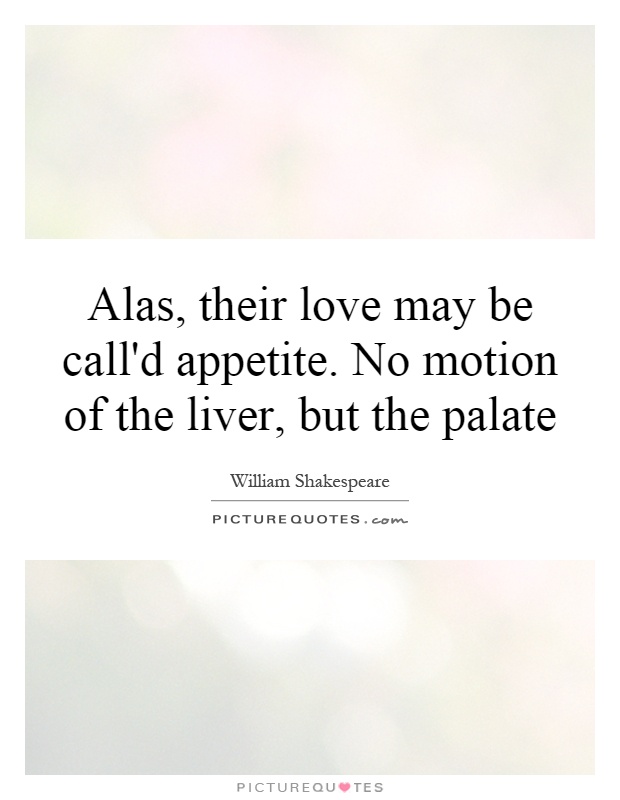Alas, their love may be call'd appetite. No motion of the liver, but the palate

Alas, their love may be call'd appetite. No motion of the liver, but the palate
In William Shakespeare's play "Antony and Cleopatra," the character Enobarbus speaks the line, "Alas, their love may be call'd appetite. No motion of the liver, but the palate." This line reflects the complex and tumultuous relationship between the two titular characters, Antony and Cleopatra.The phrase "their love may be call'd appetite" suggests that the love between Antony and Cleopatra is driven by physical desire and passion rather than deeper emotional connections. It implies that their relationship is based on a primal, instinctual need rather than a profound and enduring love. This idea is further emphasized by the following line, "No motion of the liver, but the palate," which suggests that their love is superficial and based solely on physical pleasure rather than genuine emotional attachment.
Antony and Cleopatra's relationship is characterized by intense passion and desire, but it is also marked by jealousy, betrayal, and power struggles. Their love is often tumultuous and volatile, with both characters experiencing moments of intense longing and desire for each other, as well as moments of anger and resentment.
Despite the challenges they face, Antony and Cleopatra are drawn to each other like moths to a flame, unable to resist the pull of their intense physical attraction. Their love is all-consuming and all-encompassing, dominating their thoughts and actions and driving them to make reckless and impulsive decisions.
Ultimately, the line spoken by Enobarbus serves as a reminder of the fleeting and ephemeral nature of Antony and Cleopatra's love. It suggests that their relationship is based on superficial desires and physical pleasures rather than a deep and lasting emotional connection. In the end, their love may be nothing more than a passing appetite, a temporary indulgence that leaves them empty and unsatisfied in the long run.












 Friendship Quotes
Friendship Quotes Love Quotes
Love Quotes Life Quotes
Life Quotes Funny Quotes
Funny Quotes Motivational Quotes
Motivational Quotes Inspirational Quotes
Inspirational Quotes